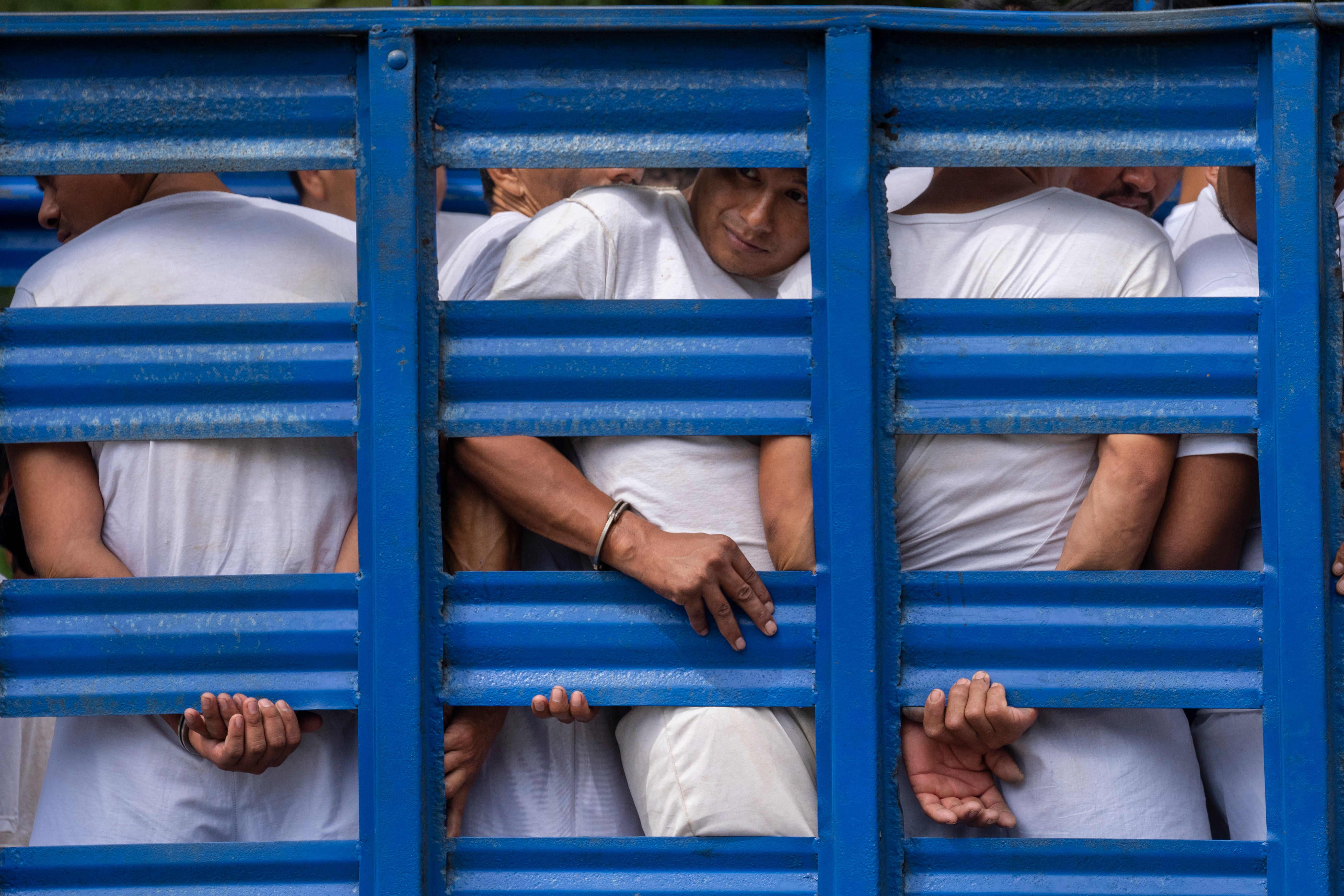El Salvador extends anti-gang emergency decree for 24th time. It's now been in effect for two years
El Salvador’s lawmakers have granted a request by President Nayib Bukele for the 24th consecutive one-month extension of an anti-gang emergency decree

Your support helps us to tell the story
From reproductive rights to climate change to Big Tech, The Independent is on the ground when the story is developing. Whether it's investigating the financials of Elon Musk's pro-Trump PAC or producing our latest documentary, 'The A Word', which shines a light on the American women fighting for reproductive rights, we know how important it is to parse out the facts from the messaging.
At such a critical moment in US history, we need reporters on the ground. Your donation allows us to keep sending journalists to speak to both sides of the story.
The Independent is trusted by Americans across the entire political spectrum. And unlike many other quality news outlets, we choose not to lock Americans out of our reporting and analysis with paywalls. We believe quality journalism should be available to everyone, paid for by those who can afford it.
Your support makes all the difference.El Salvador’s lawmakers have granted a request by President Nayib Bukele for the 24th consecutive one-month extension of an anti-gang emergency decree.
The vote by congress late Friday means that by March 27, the country will have spent a full two years under the decree, which suspends some rights.
Bukele has used emergency powers to round up 78,175 suspected gang members in sweeps that rights groups say are often arbitrary, based on a person’s appearance or where they live. The government has had to release about 7,000 people because of a lack of evidence.
The measure was approved Friday with 67 votes in the 84-seat congress, where Bukele’s party holds a majority.
The original 30-day state of emergency — approved on March 27, 2022, following a spate of 62 killings in one day — restricts the right to gather, to be informed of rights and have access to a lawyer. It extends to 15 days the time that someone can be held without charges.
El Salvador's homicide totals have dropped from 6,656 in 2015 — an average of about 18 per day — to 18 so far this year.
In all of 2023, there were about 214 homicides, or about one every two days.
But rights groups have expressed concerns about abuses inside El Salvador's prisons, and say that innocent people are being caught up in sweeps targeting the notorious violent street gangs.
Gangs once controlled swaths of territory through brutality and fear. They have driven thousands to emigrate to save their own lives, or the lives of their children who are forcibly recruited.
The gangs’ power was strongest in El Salvador’s poorest neighborhoods, where the state has been long absent. They were a drain on the economy, extorting money from even the lowest earners, and forcing businesses that can’t or won’t pay to close.
Bukele romped to reelection in February, making him El Salvador’s first reelected president. His party’s majority in congress and a friendly court they stacked allowed him to dodge a constitutional ban.